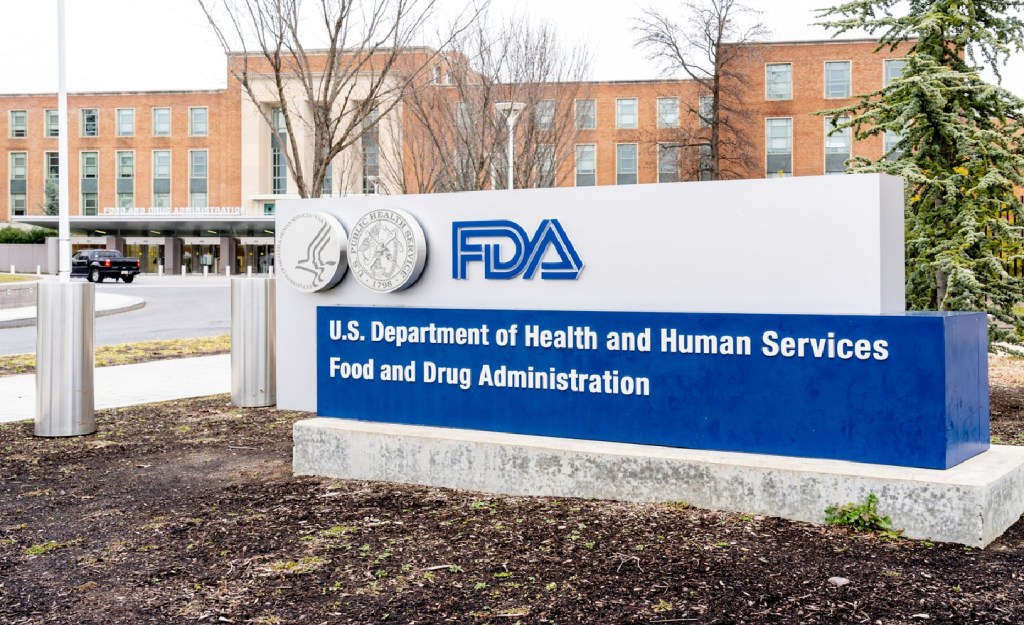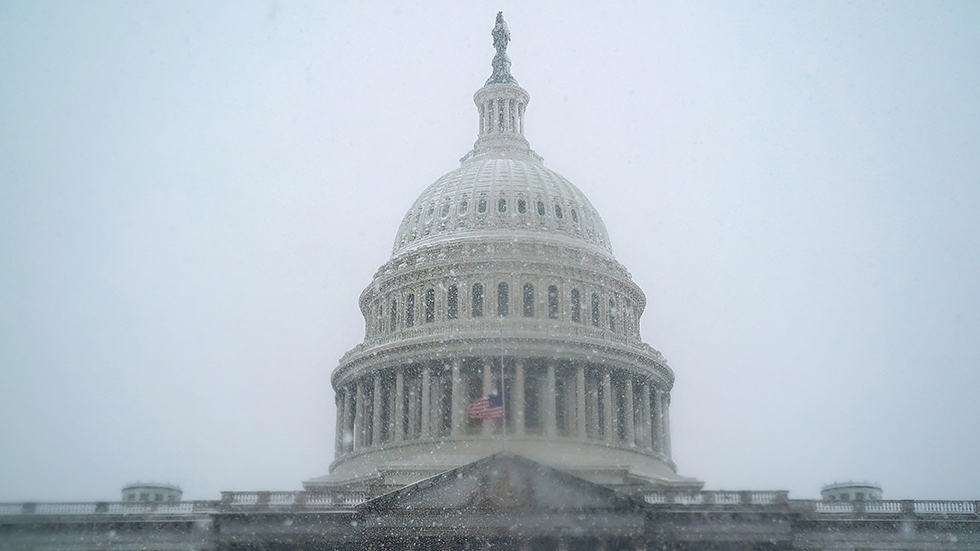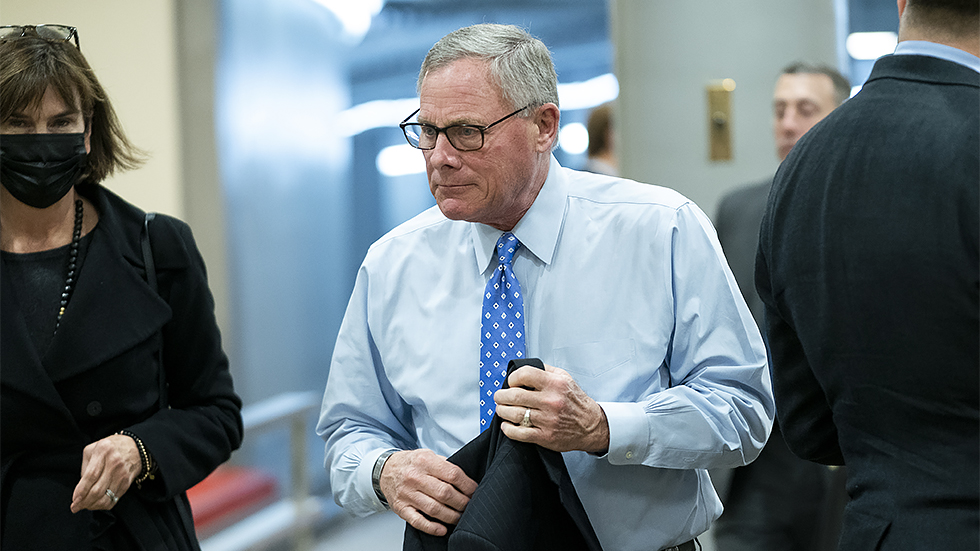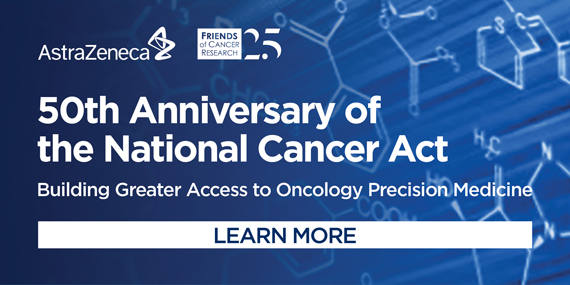Overnight Health Care — Presented by AstraZeneca and Friends of Cancer Research — FDA opens up boosters to young teens

Welcome to Monday’s Overnight Health Care, where we’re following the latest moves on policy and news affecting your health. Subscribe here: digital-stage.thehill.com/newsletter-signup.
It snowed in D.C. today, and the National Zoo’s giant panda cub was out enjoying his first snow day of the year.
The FDA authorized a booster dose of Pfizer’s COVID-19 vaccine for young teens. Plus, GOP senators are demanding answers on testing shortages.
For The Hill, we’re Peter Sullivan (psullivan@digital-stage.thehill.com), Nathaniel Weixel (nweixel@digital-stage.thehill.com) and Justine Coleman (jcoleman@digital-stage.thehill.com). Write to us with tips and feedback, and follow us on Twitter: @PeterSullivan4, @NateWeixel and @JustineColeman8.
Let’s get started.
Boosters OK’ed for 12- to 15-year-olds

The Food and Drug Administration (FDA) on Monday authorized Pfizer booster shots for people aged 12 to 15 years, another expansion in the population eligible for the third shots.
Booster shots are seen as a key tool in fighting the omicron variant, which has shown a heightened ability to infect people who have received two shots, though vaccinated people still have important protection against severe disease.
The FDA also shortened the time for all adults to get their booster shots, down to five months from six months after the initial shots.
Finally, for children 5 to 11 years old, the FDA authorized a third shot for certain immunocompromised children, who it said might not respond fully to two shots.
The FDA said the decision on boosters for 12- to 15-year-olds was based off data from 6,300 people in Israel.
“These additional data enabled the FDA to reassess the benefits and risks of the use of a booster in the younger adolescent population in the setting of the current surge in COVID-19 cases,” the agency said. “The data shows there are no new safety concerns following a booster in this population.”
The FDA said there were no new cases of myocarditis in that group from Israel, referring to heart inflammation that officials have been monitoring as a rare vaccine side effect, particularly in younger people.
A MESSAGE FROM ASTRAZENECA AND FRIENDS OF CANCER RESEARCH
The Battle Against Cancer: Setting the Next Agenda
To mark 50 years since the passage of the National Cancer Act of 1971, a select group of thought leaders working at the intersection of public health and oncology participated in a roundtable discussion, hosted by The Hill in partnership with Friends of Cancer Research and AstraZeneca’s YOUR Cancer Program, on expanding access to oncology precision medicine. Learn more.
COVID-19 infections spiking in US Capitol

Coronavirus infections in the U.S. Capitol have skyrocketed, with the seven-day average positivity rate rising from less than 1 percent to greater than 13 percent, according to a memo sent to lawmakers Monday from Capitol physician Brian Monahan.
According to Monahan, the daily case rates will increase even more substantially in the coming weeks. Dozens of infections are discovered daily, and the cases represent both a rising rate of “breakthrough infections” among mostly vaccinated individuals as well as cases in several unvaccinated individuals.
Context: The increase in cases at the Capitol corresponds to a historic spike in the greater Washington, D.C., region as the highly contagious omicron variant spreads.
According to Monahan, omicron represents approximately 61 percent of positive tests, and the delta virus variant represents 38 percent. While most of the cases are found in vaccinated individuals, Monahan noted those infections have not led to hospitalizations, serious complications or deaths, “attesting to the value of coronavirus vaccinations.”
Actions: Amid the increase in COVID cases, Senate Democrats are shifting their regular in-person lunches to virtual meetings for at least this week, per a Senate Democratic source.
The Capitol complex is not changing the rules regarding masks indoors; they are required in the House but not in the Senate. However, Monahan said masks need to be upgraded. “Blue surgical masks, cloth face masks and gaiter masks must be replaced by the more protective KN95 or N95 masks,” Monahan wrote.
DESANTIS PUSHES TO BUY MONOCLONAL ANTIBODY TREATMENT
Florida Gov. Ron DeSantis (R) called on the federal government to allow states to purchase monoclonal antibody treatments on Monday as his state and the country are slammed with COVID-19 cases.
The governor said during a press conference in Fort Lauderdale that the state is waiting to obtain enough doses to open five to 10 more monoclonal antibody treatment sites. But with the federal government in “control” of the supply, that plan is “all contingent on the federal government sending the doses we need,” he said.
Under the federal government’s “exclusive arrangement,” DeSantis said he does not think Florida is able to purchase its own monoclonal antibodies, although the state has set aside money in case the option becomes available.
The Department of Health and Human Services (HHS) paused the distribution of some monoclonal antibody treatments, including from Regeneron, in recent weeks after preliminary data showed a reduced effectiveness against the omicron variant.
The agency stockpiled doses of sotrovimab, the one antibody treatment that has been shown to work against omicron, but pushed out the remaining 55,000 doses to states just ahead of Christmas. The agency also sent out doses of other antibody treatments as well.
Supplies of sotrovimab are expected to increase this week. DeSantis said there are other variants still circulating, and his administration has the capacity to open more treatment sites if they can get the supplies.
GOP senators press for answers on testing

Two top Republican senators are calling on the Biden administration to provide answers about how it has spent billions of dollars in testing funds for COVID-19 amid shortages in such tests across the country.
Pharmacies sold out of rapid tests, and long lines at testing sites have sprung up in the last month amid holiday travel and a massive surge in cases fueled by the omicron variant.
Sen. Richard Burr (N.C.), the top Republican on the Senate’s health committee, and Sen. Roy Blunt (Mo.), the top Republican on the Appropriations health subcommittee, wrote to Secretary of Health and Human Services Xavier Becerra to ask why there are shortages despite the billions approved by Congress since 2020 that were specified for increased testing.
The senators pointed to $34.8 billion for testing across five bipartisan packages in 2020, and another $47.8 billion from Democrats’ American Rescue Plan in 2021.
“With over $82.6 billion specifically appropriated for testing, and flexibility within the Department to allocate additional funds from COVID-19 supplemental bills or annual appropriations if necessary, it is unclear to us why we are facing such dire circumstances now,” the senators write. “It does not appear to be because of lack of funding, but a more fundamental lack of strategy and a failure to anticipate future testing needs by the administration.”
Background: Late last month, the administration took action on that front, announcing the purchase of 500 million rapid tests to be made available for free to Americans who order them online. The tests are set to become available this month. Experts have pushed for further action given the U.S. population of 330 million, saying that 500 million tests are far from enough.
NYC MAYOR: ‘WE’RE GOING TO KEEP SCHOOLS OPEN’
New York City’s newly minted mayor Eric Adams (D) is seeking to reassure parents that their children will be safe as students return to school in the largest public district amid a surge in COVID-19 infections.
“We are going to be safe and we will be open to educate our children,” Adams said at a Monday morning press conference.
“We’re going to pivot. We’re going to shift. We’re going to adjust. We’re going to get it done. That’s the bottom line. We’re going to keep schools open,” he added.
David Banks, the city’s schools chancellor, said the schools are ready with substitute teachers and administrative staff in case teachers are unable to come to work because of COVID-19.
Adams told ABC News’ “This Week” on Sunday that with vaccinations and masking together “it’s safe enough to get those kids back to school, balanced against the deleterious effects of keeping them out.”
COVID-19 still looms: But while schools were out for the holiday break, COVID-19 cases in New York City more than doubled, according to The Associated Press.
WHAT WE’RE READING
- With no way to identify Omicron and Delta patients, doctors struggle with treatment decisions. (The New York Times)
- Omicron upends return to US schools and workplaces (The Associated Press)
- A WHO official weighs in on Covid, vaccines, and mistakes that were made (Stat)
A MESSAGE FROM ASTRAZENECA AND FRIENDS OF CANCER RESEARCH
The Battle Against Cancer: Setting the Next Agenda
To mark 50 years since the passage of the National Cancer Act of 1971, a select group of thought leaders working at the intersection of public health and oncology participated in a roundtable discussion, hosted by The Hill in partnership with Friends of Cancer Research and AstraZeneca’s YOUR Cancer Program, on expanding access to oncology precision medicine. Learn more.
STATE BY STATE
- ER providers are ‘overwhelmed’ as schools grapple with reopening amid Omicron surge (The Boston Globe)
- Abbott asks federal government for help with COVID testing in Texas (Axios)
- With signs of omicron spike in Alaska, residents scramble for hard-to-get tests (Alaska Public Media)
OP-EDS IN THE HILL
- Let’s stop fighting each other and tackle our common foe: the virus
- After a brutal year of overdose deaths, the US needs urgent, coordinated action
- What awaits us beyond omicron in 2022?
That’s it for today, thanks for reading. Check out The Hill’s health care page for the latest news and coverage. See you tomorrow.{mosads}
Copyright 2023 Nexstar Media Inc. All rights reserved. This material may not be published, broadcast, rewritten, or redistributed. Regular the hill posts









